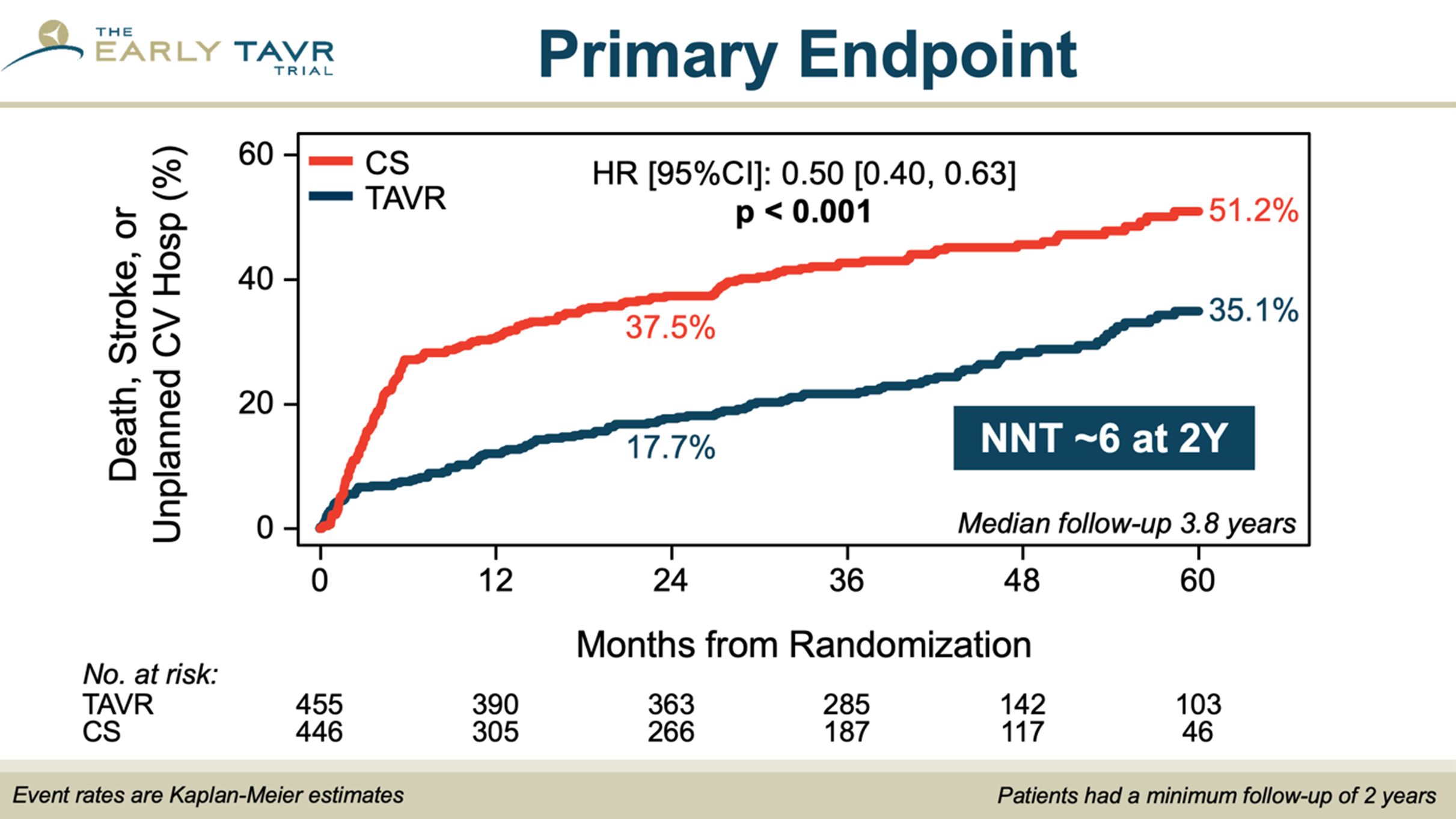
Philippe Généreux
Morristown Medical Center, USA
At TCTAP 2025, during the Ī░TAVR: Current Status and Future PerspectiveĪ▒ session held on April 26 in the Coronary Theater, Dr. Philippe Généreux (Morristown Medical Center, USA) presented pivotal findings from the EARLY TAVR trial, a prospective, multicenter randomized controlled trial that challenges the conventional wait-for-symptoms approach in patients with asymptomatic severe aortic stenosis (AS).
The study enrolled 1,578 patients, ultimately randomizing 901 asymptomatic individuals aged Ī├65 years with severe AS, preserved LVEF (Ī├50%), and an STS score Ī┬10% (Figure 1). Asymptomatic status was confirmed via negative treadmill stress testing, or, when not feasible, by detailed clinical history. Participants were randomized 1:1 to early transfemoral TAVR (using SAPIEN 3 or SAPIEN 3 Ultra) versus clinical surveillance (CS).

The primary endpoint was a composite of all-cause death, any stroke, or unplanned cardiovascular hospitalization. After a median follow-up of 3.8 years, the event rate was significantly lower in the TAVR group (35.1%) compared to CS (51.2%) with a hazard ratio of 0.50 [95% CI: 0.40–0.63], p < 0.001 (Figure 2). Notably, this translates into a number needed to treat (NNT) of ~6 at 2 years, highlighting the tangible benefit of early intervention.

Although all-cause mortality alone did not significantly differ (HR 0.93, p = 0.74), the lower rates of unplanned cardiovascular events and stroke underscore the importance of timely aortic valve replacement. Moreover, nearly half of patients initially managed with CS required AVR within one year, with a large proportion presenting with advanced symptoms or acute valve syndromes, which are associated with worse procedural and clinical outcomes.
Dr. Généreux emphasized that early referral and structured planning for TAVR should be considered even in asymptomatic patients. Ī░There is no penalty to early TAVR,Ī▒ he stated, reinforcing that delayed intervention may increase the risk of irreversible cardiac damage or stroke.
In summary, the EARLY TAVR trial offers robust evidence supporting a proactive treatment strategy for asymptomatic severe AS, redefining clinical practice toward earlier and safer intervention with transcatheter valve therapy.
TAVR: Current Status and Future Perspective
Saturday, April 26, 9:50 AM-11:20 AM
Coronary Theater, Level 1
Edited by

Osung Kwon, MD
The Catholic University of Korea Eunpyeong St. Mary's Hospital, Korea (Republic of)
